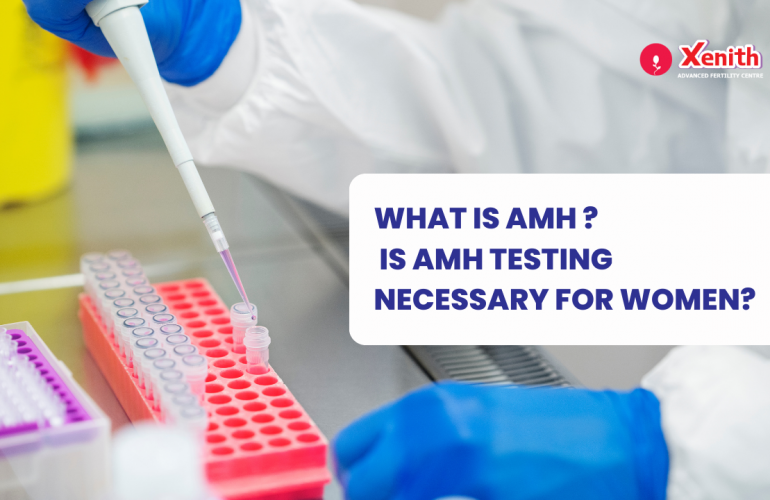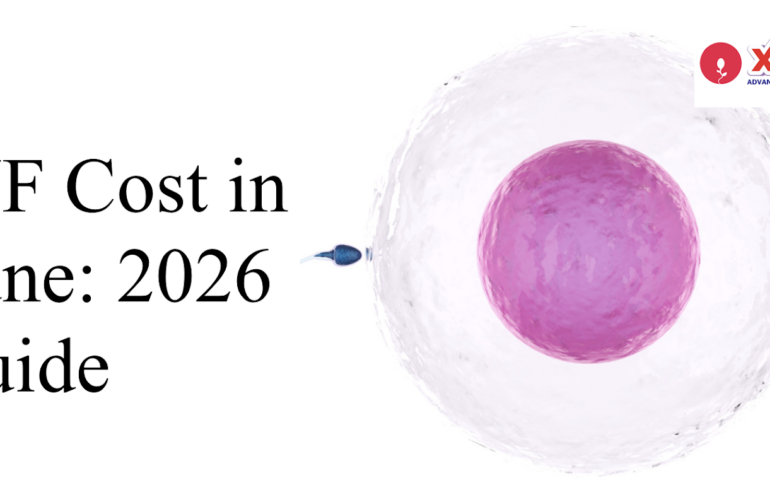More and more women are choosing to have a child later on in life due to various reasons like achieving career goals, completing their education, not finding the right partner, or other reasons. There are some advantages to getting pregnant later on in life like being more financially stable, being more mature and having more life experiences as well as coping better emotionally during pregnancy. But there are some things you need to know about having a baby after 35.
A female is born with all the eggs she will ever have and this number decreases over time. Ovarian reserve, which is this quantity, could be estimated using ultrasound and measuring levels of various hormones like Anti-Mullerian hormone which are produced by the follicles in the ovaries which mature to become eggs. The quality of the eggs also decreases over time making it harder to conceive or have problems during your pregnancy if you are in your mid 30s or older. Studies have found that a woman is most fertile from her late teens to late 20s and then the fertility gradually begins declining by age 30 after which there is a sharper decline seen by mid 30s. (1) Fertility is not just affected by age, which is a major factor, but also by lifestyle, stress, lack of sleep, toxins in environment, genetics, and general health amongst other things. The definition of infertility above age 35 is the failure to conceive after having unprotected sex for six or more months. So, if you haven’t conceived after 6 months, it would be beneficial to talk to your doctor and possibly go for fertility testing if it’s recommended where they might try to find an explanation for your fertility woes.

Free Thursday Consultation
Book Your AppointmentWhat are the risks?
Even though pregnancies in women over 35 are often normal and there are no issues, there might be some increased risks and complications that could occur as you get older. Some of them include:
- Increased risk of gestational diabetes which is diabetes that develops during pregnancy and often goes away after giving birth. This condition would need you to control your blood sugar levels through exercise, diet or with medication. If it’s untreated, the baby could grow larger than normal and this could cause problems during birth needing caesarean section, premature birth or even stillbirth.
- Increased risk of gestational hypertension or high blood pressure that develops during pregnancy and again often goes away after giving birth. Your blood pressure should be monitored often along with the baby’s growth and proper development. The baby might also need to be delivered before the due date to prevent complications.
- The chance of having a caesarean section might go up due to a higher risk of pregnancy-related complications.
- The risk of chromosomal abnormalities like Down’s syndrome is higher in babies born to older mothers which could be due to availability of poorer quality eggs. This could also lead to miscarriages, stillbirths or babies born with congenital birth defects.
- The risk of miscarriage and stillbirth increases with age due to various reasons like health issues or chromosomal abnormalities in the baby causing genetic defects.
- Preeclampsia, a condition that causes high blood pressure, high levels of protein in the urine or cause damage to certain organs could be higher in older pregnant women. If it’s not treated and monitored carefully, it could even lead to fatalities for mother and baby.
- Maternal mortality increases with age.
Is there anything you can do?
It is important to be your most healthy self and have good pre-pregnancy care before trying to conceive to lessen the risk to the baby’s health as well as yours. Here are some things you can do:
- Family planning is an important discussion to have with your spouse before trying to conceive. Discuss your educational/career goals, financial goals, your relationship, when you would like to have a baby, spacing between having more children and how many children you would like to have especially if you are older, use of contraception and general readiness.
- Make a preconception appointment with your doctor about what you can do to improve your fertility and go through a healthy pregnancy. If you have some chronic conditions, health issues, genetic conditions or are taking some medication, enquire if it could affect your fertility or pregnancy. Enquire about your risks of having a child later in life and genetic testing given your specific health circumstances. You might need to get some testing done like blood tests, sperm testing for your partner, ultrasound to check your uterus and ovarian health and other tests to check your fertility. You will also need to take some supplements like prenatal vitamins, calcium, iron, vitamin D and/or folic acid at least 3 months before conception. The doctor might also suggest going through assisted reproductive technology like in vitro fertilization depending on your age, fertility or health issues.
- Make changes to your lifestyle if it’s needed. Eat a healthy, balanced diet, get regular exercise, get enough sleep, stop smoking and drinking alcohol, cut down on caffeine. Eat lots of fruit and vegetables and avoid eating out. Regular exercise like walking throughout your pregnancy could boost energy, keep you and the baby healthy and keep your body prepared for labour and delivery. Obesity could affect your fertility and could lead to complications in your pregnancy. Look after your mental and emotional health and try to decrease stress in your life. Try meditation, yoga or anything else that helps you destress.
- Get regular prenatal care once you are pregnant and go for all your prenatal visits so that the baby’s health as well as yours could be monitored. If you have any issues or symptoms, talk to your doctor to put your mind at ease. Also, make sure to gain the proper amount of weight for your baby’s health.
- You could choose to get tested for any genetic or chromosomal abnormalities of your fetus by doing a blood test. Some other tests like amniocentesis could also provide information although they may be more invasive.
- Enroll for childbirth preparation classes and make a birth plan with your OBGYN so that you are very clear about your wishes and what to do in certain emergencies during your pregnancy and labor and delivery.
- Have a support system around you like your spouse, close friends or family that could help you when you are feeling down or are anxious about something. You could also join a support group or talk to a counsellor if that helps.
Your choices before you even conceive could have a lasting effect throughout your pregnancy and well into your baby’s life as well as yours. So, this is your window of opportunity to be prepared well in advance and make educated decisions about the outcomes of your future family. If you have any questions regarding this, come talk to our experts at Xenith Advanced Fertility Centre.




